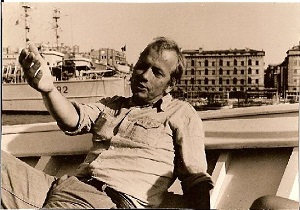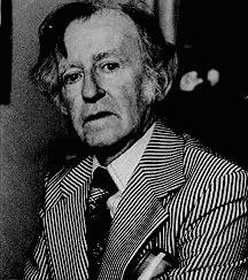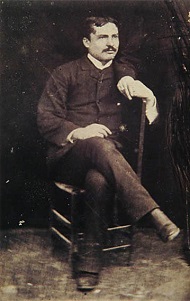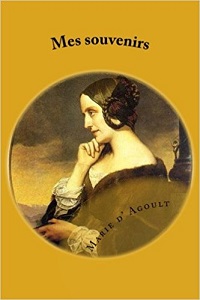|
De Duitse dichter en schrijver Dieter Noll werd geboren op 31 december 1927 in Riesa. Zie ook alle tags voor Dieter Noll op dit blog.
Uit:Die Abenteuer des Werner Holt
„Der Wecker rasselte. Werner Holt schreckte aus dem Schlaf, sprang aus dem Bett und stand ein wenig taumelig im Zimmer. Er fühlte sich nicht erfrischt, sondern matt und benommen. Sein Kopf schmerzte. In einer Stunde begann der Schulunterricht.
Durch die weitgeöffneten Fenster flutete Sonnenlicht. Der Mai des Jahres 1943 endete mit heißen, trockenen Tagen, mit prachtvollem Badewetter. Der Fluß, der bei der kleinen Stadt reißend durch die Berge brach, lockte mit seinen grünen Ufern weit mehr als das ziegelrote Schulhaus und seine muffigen Räume.
Mathematik, Geschichte, Botanik und Zoologie, dachte Holt, und dann zwei Stunden bei Maaß, Studienrat Maaß, Latein und Englisch. Die Übersetzung aus dem Livius muß ich bei Wiese abschreiben, in der großen Pause. Wenn ich bei Zickel drankomm, meck-meck, dann gibt’s ein Fiasko … Allmählich wich der dumpfe Schmerz, der hinter der Stirn saß. Er erinnerte sich jetzt, erregend und beängstigend geträumt zu haben, von der Marie Krüger und ihrem zigeunerhaft bunten Rock, und dann von einer Schlägerei mit Wolzow.
Ich bin krank, dachte er, als ihn bei der dritten Kniebeuge vor dem offenen Fenster ein Schwindelgefühl ergriff, ich geh nicht in die Schule, mir ist elend, ich bleib im Bett. Nein! Das ist unmöglich. Wenn ich heut fehle, dann hab ich verspielt, dann heißt es, ich hab Angst vor Wolzow. Bei diesem Gedanken wurde ihm noch elender. Es hatte gestern mit Wolzow Krach gegeben, es hatte vorgestern, es hatte jeden Tag Krach gegeben; und heute war die Prügelei fällig. Er fürchtete niemanden in der Klasse, aber gegen Wolzow hatte er keine Chance: und damit war er erledigt. Denn ein unbesiegter Held war, von Homer bis heute, so gewaltig wie sein Mundwerk, aber ein besiegtes Großmaul war nur noch lächerlich.“

Dieter Noll (31 december 1927 – 6 februari 2008)
Cover
De Duitse dichter en schrijver Nicolas Born werd geboren op 31 december 1937 in Duisburg. Zie ook alle tags voor Nicolas Born op dit blog.
Dick vermummtes Winterbild (Fragment)
Ich spüre nichts und gehe durch stille Autokolonnen.
Die Welt ist eingepackt in Goldpapier.
Die Beleuchter stöhnen.
Das Gehirn labt sich am gelben Neon-Geflügel
der Wienerwaldstätten;
eine Rolle Drops erstrahlt in feierlichem Glanz.
Hier auf der U-Bahntreppe verliere ich haltlos
die Tränen
und wieder vergeht auch bei uns zu Hause
ein Winter ohne jede Zuchtperle.
Die Hauptperson liegt in ihrem kleinen Bett
mein Kind, ich sehe es an, es ist Jesus.
Es riecht so gut durch die Windeln - Babycreme
gemischte Gerüche und Gefühle, Wollsocken
eine Herberge, ein Licht dem man sich nähern kann.
Ich nehm die Hände aus den Taschen. Ich bin
verrückt nach diesem Babygeruch.
Das grüne Badewasser läuft ab und unter der Erde
schäumt ungesehen ein Wunder auf.
Ich und du - wir schlagen uns heute morgen
mit unendlich humanem Ausdruck ans Kreuz.
Das war wieder mal das Frühstück. Meiner Frau
bleibt die Milch weg von der Schufterei, ich sehe
das ein.
Draußen wird noch geschossen. Man packt uns
an den kleinen Beinen und wirft uns in die Luft.
Wir werden geschlagen und erschossen, das aber
erst später.
Jesus greift nach meiner Brille, aber vielleicht
will er mich nur segnen.
Ich will keine alten Geschichten und
keine neuen Geschichten. Und ich will keine
renovierten Geschichten.
Ich will die Verwandlung menschlicher Energie
in warme Zimmer und dampfende Abendessen.
Ich hack dir dein Holz damit du es von Weihnachten
bis Ostern warm hast.

Nicolas Born (31 december 1937 – 7 december 1979)
De Australische schrijver Dal Stivens werd geboren op 31 december 1911 in Blayney, New South Wales. Zie ook alle tags voor Dal Stivens op dit blog.
Uit: The Pepper--Tree (Retold by Christine Lindop)
“My father often spoke about the pepper-tree when I 'as a child, and it was clear that it meant a lot to him – like the Rolls Royce he was always going to buy. It wasn't what he said about the pepper-tree – my father was not very clever with words – bur how lie said it. When he spoke of the pepper-tree at Tullama where he had grown up, you saw it clearly: an enormous tree with long sheets of green leaves in a big wide backyard in a country town. `A proper backyard–not one of your miserable city yards,' my father said. In this great tree there was always a noisy traffic of birds flying from branch to branch. When we lived at Newtown, Sydney, I used to look for pepper-trees when my father took me for a walk on Sunday afternoons. 'Look, there's a pepper-tree,' I'd say to him when I saw one.
`By golly, boy, that's only a little runt of a tree,' my dad would say 'They don't grow so well in the city Too much smoke, by golly. You ought to see them out west where 1 come from.' My father was a tall, thin man with sad brown eyes and a head full of dreams. That was why he wanted to own a Rolls Royce one day 'First our own house and then one day, if I'm lucky, I'll buy a Rolls Royce,' he would say. Some of his friends thought this was a crazy dream. `What would you do with a car like that, Peter?' they would say. 'Go and live with the millionaires?' My father would stroke his long brown moustache, which had only a little white in it, and try to explain, but he could not make them understand. It has taken me all these years to realize what a Rolls Royce meant to him. `It's not about what other people think of me,' he would say to my mother. `No, by golly. I want to own a Rolls Royce because it is the most perfect piece of machinery made in the world. Why, a Rolls Royce—' And then he would stop and feel for the right words to describe what he felt, and clumsily, lovingly, he would go on talking about how beautiful the engine was ... 'What would a garage mechanic do with a Rolls Royce, ask your my mother would say 'I'd feel silly sitting up in it.' At such rimes my mother would grab her brush and start cleaning the kitchen floor hard.”

Dal Stivens (31 december 1911 - 16 juni 1997)
Cover
De Amerikaanse (sciencefiction) schrijfster Connie Willis werd geboren in Denver (Colorado) op 31 december 1945. Zie ook alle tags voor Connie Willis op dit blog.
Uit:A Lot Like Christmas
“I love Christmas. All of it—decorating the tree and singing in the choir and baking cookies and wrapping presents. I even like the parts most people hate—shopping in crowded malls and read-ing Christmas newsletters and seeing relatives and standing in baggage check-in lines at the airport. Okay. I lied. Nobody likes standing in baggage check•in lines. I love seeing people get off the plane, though, and holly and candles and egg-nog and carols. But most of all, I love Christmas stories and movies. Okay, I lied again. I don't love all Christmas stories and movies. It's a Wonderful Life, for instance. And Hans Christian Andersen's The Fir Tree." But I love Miracle on 34th Street and Christopher Morley's The Tree That Didn't Get Trimmed' and Christina Rossetti's poem in the Bleak Midwinter." My family watches The Sure Thing and A Christmas Story each year, and we read George V. Higgins's "The Impossible Snowsuit of Christmas Past" out loud every Christmas Eve, and eagerly look for new classics to add to our traditions. There aren't a lot. This is because Christmas stories are much harder to write than they look, partly because the subject matter is fairly lim-ited, and people have been writing it for nearly two thousand years, so they've just about rung all the changes possible on snowmen, Santas, and shepherds. Stories have been told from the point of view of the fourth wise man (who got waylaid on the way to Bethlehem), the innkeeper, the innkeeper's wife, the donkey, and the star. There've been stories about department-store Santas, phony Santas, burned-out Santas, substitute Santas, reluctant Santas, and dieting Santas, to say nothing of Santa's wife, his elves, his reindeer, and Rudolph. We've had births at Christmas (natch!), deaths, partings, meetings, mayhem, attempted suicides, and sanity hearings. And Christmas in Hawaii, in China, in the past, the fu-ture, and outer space. We've heard from the littlest shepherd, the littlest wise man, the littlest angel, and the mouse who wasn't stirring. There's not a lot out there that hasn't already been done. In addition, the Christmas-story writer has to walk a narrow tight-rope between sentiment and skepticism, and most writers end up falling off into either cynicism or mawkish sappiness. And, yes, I am talking about Hans Christian Andersen. He invented the whole three-hanky sob story, whose plot Maxim Gorky, in a fit of pique, described as taking a poor girl or boy and letting them "freeze somewhere under a window, behind which there is usually a Christmas tree that throws its radiant splendor upon them: Match girls, steadfast tin soldiers, even snowmen (melted, not frozen) all met with a fate they (and we) didn't deserve, especially at Christmas.“

Connie Willis (Denver, 31 december 1945)
Cover
De Italiaanse dichter Giovanni Pascoli werd geboren op 31 december 1855 in San Mauro di Romagna. Zie ook alle tags voor Giovanni Pascoli op dit blog.
The Truth (Fragment)
And there was a flowering garden in the sea,
in a sea glossy as the sky; and a song
of two Sirens did not resound yet,
because the meadow was distant.
And the old hero felt a strong premonition,
a current running in the calm sea,
pushing the boat toward the Sirens;
and he told the men to raise their oars:
“The ship turns away from them now, friends!
But don't worry that the roar of the rowing
disturbs the songs of the Sirens. By now
we should hear them. Listen to the song
calmly, your arms on the oarlocks.”
And the current running quiet and smooth
pushes the ship forward more and more.
And the godlike Odysseus sees at the top
of the blooming island, the Sirens,
stretched out among the flowers, heads
erect, upright on idle elbows, watching
the rosy sun rising across from them;
watching, motionless; and their long shadows
were stripes across the island of flowers.
'Are you sleeping? The dawn has passed
already. Already eyes under delicate brows
look for the sun. Sirens, I am still mortal.
I heard you, but I could not stop.”
And the current ran on, quiet and smooth,
pushing the ship forward more and more.
And the old man sees the two Sirens,
their eyebrows raised high above their pupils,
gazing straight ahead, at the fixed sun,
or at him, in his black ship.

Giovanni Pascoli (31 december 1855 – 6 april 1912)
De Franse schrijfster gravin Marie de Flavigny d'Agoult werd in 1805 geboren in Frankfurt Am Main. Zie ook alle tags voor Marie d'Agoult op dit blog.
Uit: Mes souvenirs
« Il avise ce fils, peu résigné, paraît-il, que tout homme impatient aux adversitez piaffe volontiers, insolent, aux prospéritez. L’ordre des sentiments où notre chevalier du xvie siècle va puiser le plus souvent ses consolations n’a rien que de tempéré. À l’encontre des stoïciens, il permet la plainte, pourvu qu’elle se modère ; il cherche à toutes choses un bon aspect. Prisonnier lui-même, au retour d’Arques, il sait par expérience que l’on gagne en prison ; que son servage forcé donne l’esprit libre à l’estude. Dans sa ruine, dans ses pauvreté z, comme il écrit à la façon de nos modernes romantiques (il a été pendant ces guerres civiles misérablement deschiré ; il a eu ses villages désolés, ses plus belles maisons détruites, ses chevaux tués ou perdus), il se tient en bonne humeur néanmoins. Réduit en sa cage de Souhé, il relit Platon et Plutarque; il consulte la Bible et les astres ; il écoute la voix des songes. Demi-chrétien, demi-païen, quelque peu arabe, gentilhomme avant tout, humaniste et moraliste, confiant en la belle et vertueuse fortune de son roy, pour se mettre au cœur l’allégresse et l’avant-goût des batailles, il lui suffira d’un souffle du printemps : Jà, la terre nous rit, écrit-il, de sa cage de Souhé ; jà les arbres boutonnent ; le soleil nous renflamme, et la nécessité renforce le courage. — À ce mot nécessité qui revient aisément sous la plume de mon ancêtre, à ces hautes planètes, à ces calculs des Arabes où il se fie ; à la manière un peu légère dont il traite les subtilitez de la grâce et du libre arbitre, n’en voulant pas laisser estonner la simplicité de sa prière ; au plaisir qu’il paraît prendre à conter à son fils le conte du Vrai annel ; à l’opinion qu’il a de l’enfer, de ces peines infinies dont il ne veut pas croire que l’immense bénignité de Dieu punisse nos péchés finis, j’entre en doute, je l’avoue, sur la parfaite orthodoxie du chevalier chrétien. »

Marie d'Agoult (31 december 1805 – 5 maart 1876)
Cover
Zie voor nog meer schrijvers van de 31e december ook mijn vorige blog van vandaag.
Zie voor bovenstaande schrijvers ook mijn blog van 31 december 2006 en ook mijn blog van 31 december 2007 en eveneens mijn blog van 31 december 2008.
|



